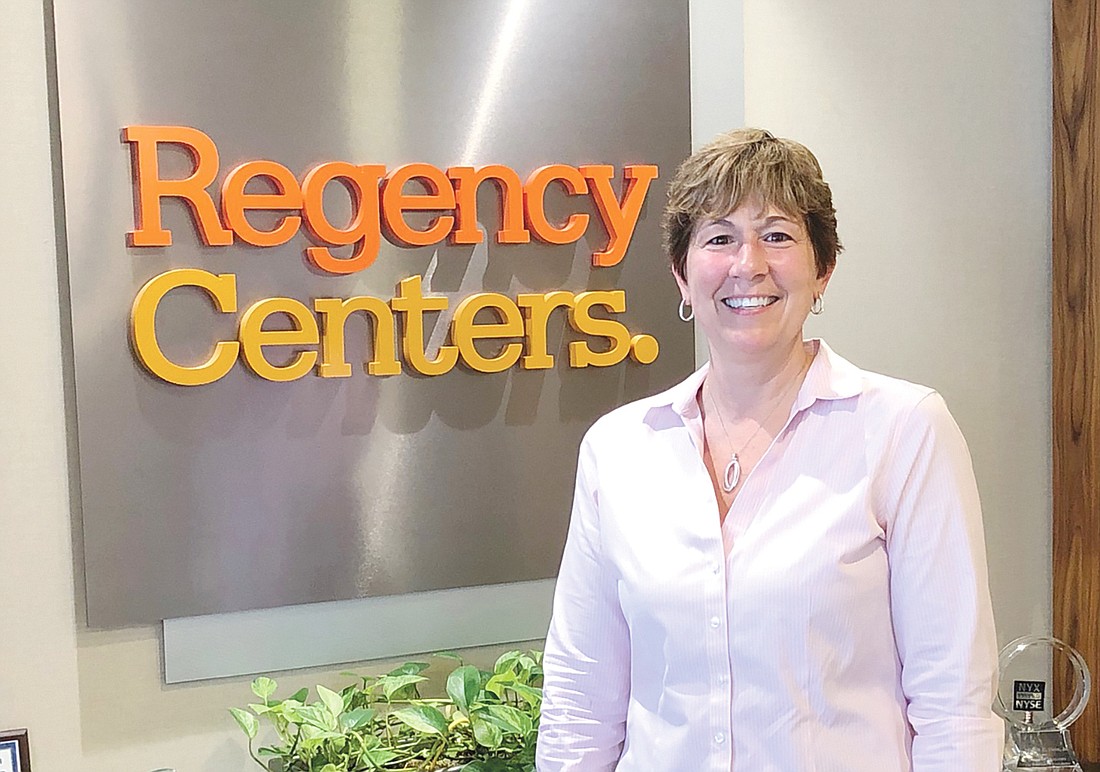
Regency Centers Corp.’s quarterly earnings report last week gave a pretty good snapshot of the retail landscape across the U.S.
Jacksonville-based Regency said it collected 93% of April base rent from “essential” retail and services businesses operating in the company’s 416 shopping centers as of May 5.
That includes supermarkets, drugstores, mass merchandisers, banks, pet stores, office supply and medical tenants.
However, other categories of tenants, including restaurants, fitness centers and personal services businesses, paid only 37% to 45% of April rents
Adding it all up, Regency had collected 62% of total rents through May 5.
Regency said all of its properties remained open and its centers were 94.5% leased at the end of the first quarter.
However, 40% of its more than 8,000 tenants were closed at the end of April. Regency did say some are reopening this month as states lift mandatory closures.
Regency’s funds from operations (earnings excluding noncash charges) were 98 cents a share in the first quarter, 3 cents higher than last year.
Regency CEO Lisa Palmer said in a conference call with analysts the company’s earnings outlook remains cloudy because of the COVID-19 pandemic.
“Even though we recognize that there may still be uncertainty when we have our earnings call with you in August, we should have a much better view of the impacts from the pandemic and the recession on our company,” she said.
After reporting $119 million in losses in 2019, Rayonier Advanced Materials Inc. reported a first-quarter loss from continuing operations of $25 million.
CEO Paul Boynton said in a news release last week the company had “minimal impact” from COVID 19, but the Jacksonville-based maker of cellulose specialties products has been impacted by depressed commodity prices.
“All of our businesses and operations have been deemed essential due to the important role these products play in the food, pharmaceutical, and industrial products supply chains,” he said.
Boynton had been chairman of Rayonier AM’s board in addition to serving as CEO, but the company announced in March it would separate the roles of chairman and CEO.
Last week, Rayonier AM said the board elected De Lyle Bloomquist as chairman.
Bloomquist, a director since 2014, previously was CEO of General Chemical Industrial Products Inc.
It’s now been more than a year since Waste Management Inc. agreed to buy Ponte Vedra-based Advanced Disposal Services Inc.
But Waste Management CEO James Fish said last week he is hopeful the antitrust review of the merger of the waste services companies will be completed by the end of the second quarter.
“I’m not going to blame anything on this pandemic,” Fish said during Waste Management’s quarterly conference call last week, according to a company transcript.
He said attorneys having to work from home have made it more difficult to complete the process.
“Credit to both sides for doing a nice job continuing to work,” he said.
“But no question, there was some impact from COVID-19 on this. We did not contemplate, when we closed this deal, any type of major economic disruption when we went about this in April of ‘19.”
Waste Management agreed to buy Advanced Disposal for $33.15 per share in cash. Even when the market collapsed in February and March, Advanced Disposal’s stock price stayed only slightly lower than that level.
Given the pandemic’s impact, an analyst asked why the company hasn’t tried to lower the buyout price. Fish said he couldn’t discuss that now.
“I’d love to be able to answer that for you but we just don’t talk about those, and we’ll talk about that after the fact,” he said.
Fidelity National Information Services Inc., or FIS, reported first-quarter adjusted earnings of $1.28 a share, 12 cents higher than last year.
Revenue grew organically by 2% to $3.078 billion.
The banking technology company, which employs 55,000 people at 200 global locations, said 95% of its employees are working from home because of the pandemic.
FIS employs about 1,200 at its Jacksonville headquarters and expects to add 500 jobs as its builds a new headquarters building on Riverside Avenue.
FRP Holdings Inc. reported first-quarter earnings of 15 cents a share, 4 cents lower than last year, as the Jacksonville-based commercial real estate developer looks for more investment opportunities.
FRP sold off most of its operating properties two years ago and has been looking at options to reinvest the proceeds.
In its quarterly conference call last week, Executive Chairman John Baker said FRP has about $160 million in cash and bonds available.
“We’re scaling back on capital expenditures with the thought that this liquidity could allow us to gain some incredible opportunities if the economy doesn’t bounce back, and we don’t expect that it will immediately,” Baker said.